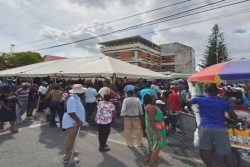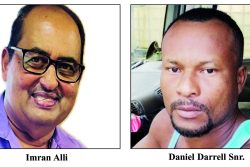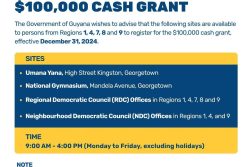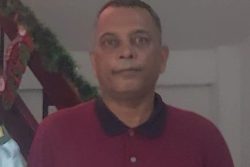-admits passing reports to ambassador in Venezuela
Former PNCR parliamentarian Abdul Kadir, who is on trial for plotting to blow up the JFK airport, yesterday denied an accusation by the US that he spent years secretly working as a spy for Iran — passing along information about Guyana’s economy, foreign policy and military to Iranian officials.
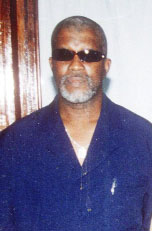
According to a Bloomberg report, Kadir, admitted under cross-examination that he drafted regular reports for the Iranian ambassador to Venezuela, which included details like the “low morale” in the Guyanese army. The documents he allegedly drafted included a five-year development plan to promote Islam in Guyana, which included references to infiltrating the military, police and other government agencies.
“Is it fair to say that you’re a spy for the Iranian government?” Assistant U.S. Attorney Marshall Miller asked Kadir yesterday after showing him reports on Guyana that he sent to Iran’s ambassador to Venezuela.
“No sir,” Kadir answered.
Kadir and Russell Defreitas, a former Evergreen Airlines cargo worker, have been charged with participating in the plot hatched in January 2006. They circulated their plan to an international network of Muslim extremists, prosecutors allege. The plot was foiled in the planning stages with the aid of an informant, Steven Francis, who recorded the alleged plotters’ conversations and who testified at trial in federal court in Brooklyn, New York. Kadir first took the stand on Tuesday.
Kadir was arrested in June 2007 on a plane in Trinidad on his way to Iran.
US prosecutors argued that Kadir was going to Tehran to get operational and financial support for the plot to blow up fuel lines and tanks at the airport. Kadir testified on Tuesday that he was going there to obtain funds for a mosque he wanted to build in Guyana and to commemorate the anniversary of the death of Ayatollah Ruhollah Khomeini, Iran’s former supreme leader. Kadir said he had gone to Iran twice before.
On cross-examination by Miller, Kadir first said he never shared information on Guyana with the Iranian embassy in Venezuela, the closest to his home country.
Miller then exhibited several reports in Kadir’s handwriting on Guyana’s economy, military and politics. In one report, Kadir wrote about the “sinking” morale of the Guyanese army.
“Yes, I was telling him about what was happening in Guyana, sir,” Kadir testified.
Miller also showed the jury a handwritten “five-year development plan” by Kadir that he testified was for promoting Islam in Guyana. Miller asked him questions about points in the document referring to infiltrating Guyana’s army, police force and ministries.
Kadir, responding to a question by his own lawyer, Kafahni Nkrumah, said he learned about the airport bomb plot from Defreitas and Francis in February 2007. Kadir said he never told anyone about the plan, even though he told the two men he would try to interest others in it. “I never spoke to anyone after they told me about the plot,” Kadir told the court.
The jury previously listened to a March 2007 recording of Kadir telling Francis that the people he contacted weren’t interested in participating in the terror plot at that time. They might be in the future, Kadir said on the recording.
“I said that to him just because I did not want him to sever relationships with me completely,” Kadir testified yesterday.
“I did tell them I wasn’t interested in their plan from the very first time they introduced it to me.”
The attacks were designed to destroy “the whole of Kennedy,” the largest airport in the New York area, Defreitas said in a taped conversation, according to the US Justice Department.
The plotters conducted surveillance of the airport, including videotaping its buildings, and sought expert advice, financing and explosives, prosecutors said.
In her June 30 opening statement, Assistant U.S. Attorney Berit Berger told jurors that Kadir was an engineer who advised on the technical aspects of the plot.
Kadir and Defreitas face life in prison if convicted.
Defreitas, a U.S. citizen and native of Guyana, pleaded not guilty in 2007.
Abdel Nur, another Guyanese who was also charged in the plot, pleaded guilty on June 29 to one count of providing support to terrorists. Another accused, Kareem Ibrahim, a citizen of Trinidad who has pleaded not guilty in the case, was granted a separate trial at a later date due to a medical condition.

